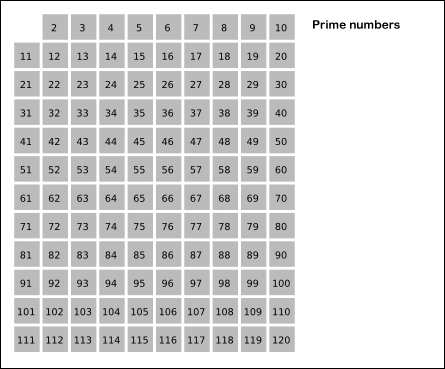How can I test this C program for "efficiency"? The most interesting usage is that it returns negative output for large enough input, otherwise the behavior is about expected. Will you suggest how to improve the code, both the ui used in main that should be both efficient and preferably platform-indepedent and not use too much libraries for portability and optimization. I think the obvious improvement that I can make is recoding the int to unsigned int:
/*
* NextPrime
*
* Return the first prime number larger than the integer
* given as a parameter. The integer must be positive.
*/
#define PRIME_FALSE 0 /* Constant to help readability. */
#define PRIME_TRUE 1 /* Constant to help readability. */
#include <stdio.h>
#include <stdlib.h>
int nextprime(int inval) {
int perhapsprime; /* Holds a tentative prime while we check it. */
int testfactor; /* Holds various factors for which we test perhapsprime. */
int found; /* Flag, false until we find a prime. */
if (inval < 3) /* Initial sanity check of parameter. */
{
if (inval <= 0)
return (1); /* Return 1 for zero or negative input. */
if (inval == 1)
return (2); /* Easy special case. */
if (inval == 2)
return (3); /* Easy special case. */
} else {
/* Testing an even number for primeness is pointless, since
* all even numbers are divisible by 2. Therefore, we make sure
* that perhapsprime is larger than the parameter, and odd. */
perhapsprime = (inval + 1) | 1;
}
/* While prime not found, loop. */
for (found = PRIME_FALSE; found != PRIME_TRUE; perhapsprime += 2) {
/* Check factors from 3 up to perhapsprime/2. */
for (testfactor = 3; testfactor <= (perhapsprime >> 1) + 1; testfactor
+= 1) {
found = PRIME_TRUE; /* Assume we will find a prime. */
if ((perhapsprime % testfactor) == 0) /* If testfactor divides perhapsprime... */
{
found = PRIME_FALSE; /* ...then, perhapsprime was non-prime. */
goto check_next_prime;
/* Break the inner loop, go test a new perhapsprime. */
}
}
check_next_prime: ; /* This label is used to break the inner loop. */
if (found == PRIME_TRUE) /* If the loop ended normally, we found a prime. */
{
return (perhapsprime); /* Return the prime we found. */
}
}
return (perhapsprime); /* When the loop ends, perhapsprime is a real prime. */
}
int main(int argc, char *argv[]) {
int intvar;
if (sscanf(argv[1], "%i", &intvar) != 1) {
printf("please use an integer parameter to compute the next prime\n");
} else
printf("%d => %d\n", intvar, nextprime(intvar));
return 0;
}


